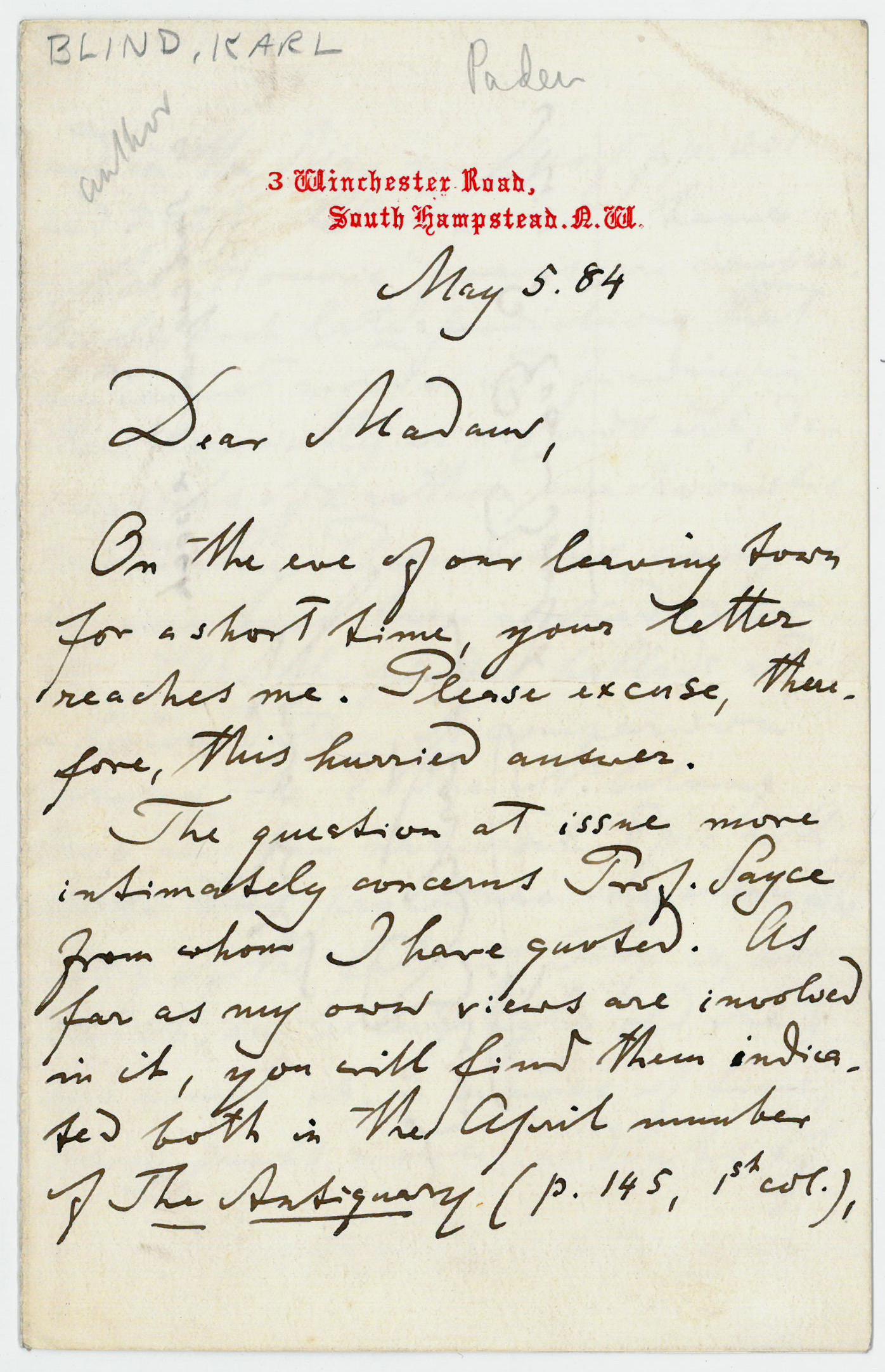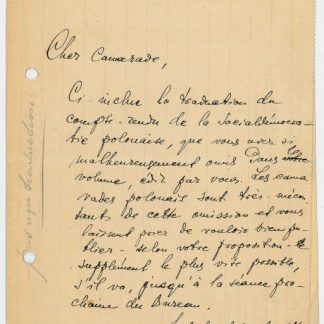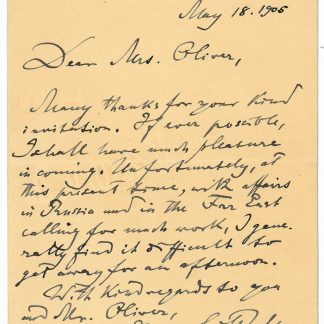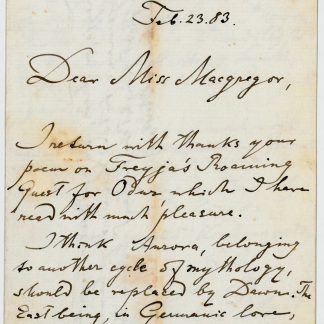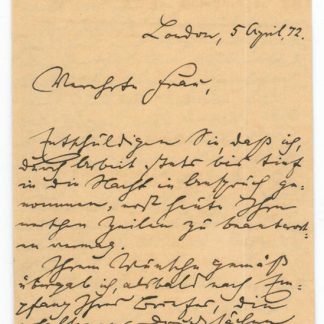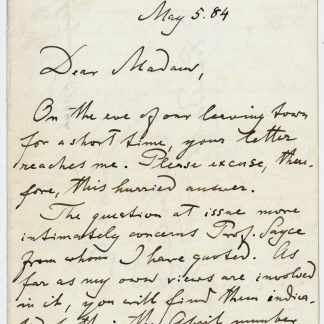Autograph letter signed.
8vo. 3 pp. on bifolium.
€ 4,500.00
To Miss E. Eva Boult, citing his views as set forth in an issue of The Antiquary: "On the eve of our leaving town for a short time, your letter reaches me. Please excuse, therefore, this hurried answer. The question at issue more intimately concerns Prof. Sayce [i. e. the pioneer British Assyriologist and linguist Archibald Sayce] from whom I have quoted. As far as my own views are involved in it, you will find them indicated both in the April number of The Antiquary (p. 145, 1st col.), and in the May number (p. p. 201 and 202). What we now have of the 'Homeric' poems, are comparatively such late productions that we cannot wonder at finding in them, especially as regards art, descriptions of a rather anachronistic kind. The Phoenikians, consequently, may have been worked into the earlier rhapsodic ballads at a later date. A comparison between the Eddic Nibelung lays and our national Epic will make this procedure very clear. The story of the fall of Troy is, no doubt, an exceedingly old one [...]".
On stationery with printed address.

